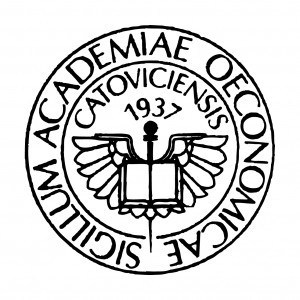EuroIn International Business and Risk Engineering program at Steinbeis University is a comprehensive and innovative master's degree designed for aspiring professionals seeking to excel in the dynamic fields of international business, risk management, and engineering. This program offers students a unique blend of theoretical knowledge and practical skills, enabling them to effectively analyze, assess, and manage complex risks associated with global business environments and engineering projects.
Throughout the program, students are immersed in advanced concepts of international marketing, strategic management, financial analysis, and legal frameworks that govern international commerce. Special emphasis is placed on understanding cultural differences, geopolitical factors, and economic trends that influence decision-making processes across borders. The curriculum also includes specialized modules on risk engineering, covering topics such as hazard identification, risk mitigation strategies, safety management, and resilient design principles.
The program is tailored for professionals who aim to develop a holistic approach to managing uncertainties and challenges in international business operations. It prepares graduates to assume leadership roles in multinational corporations, consultancy firms, and public institutions where risk evaluation and mitigation are crucial. The interdisciplinary nature of the program ensures that students gain proficiency in project management, data analysis, and innovative problem-solving techniques vital for today’s competitive global markets.
Students benefit from a flexible learning structure that combines face-to-face seminars, online modules, case studies, and industry projects. This approach facilitates the application of academic concepts to real-world scenarios, fostering a practical understanding of complex issues. Collaboration with industry partners and participation in international workshops provide valuable networking opportunities and enhance professional development.
Graduates of the EuroIn International Business and Risk Engineering program acquire a robust skill set that includes strategic thinking, risk assessment, and engineering expertise, all within an international context. They are well-equipped to contribute to the development of sustainable business strategies, ensure regulatory compliance, and implement innovative risk management solutions. The program’s international orientation and multidisciplinary curriculum make it an ideal choice for individuals seeking to advance their careers in globalized industries and complex engineering environments.
Designed to meet the demands of tomorrow’s professionals, the EuroIn program at Steinbeis University combines academic excellence with practical relevance. It aims to foster leadership, resilience, and strategic insight among its students, empowering them to navigate and shape the future of international business and risk engineering successfully.
Educational organisation
The Master's programme includes 10 modules for a total of 120 ECTS credits, as well as a fully supervised and documented study project and Master's thesis.In terms of curriculum and organisation, the Project Competence Concept, which based on the dual study system, goes way beyond conventional degrees.
One part of the admission requirements is that students willing to enrol must have a project at a company or organisation. Young graduates can be supported by the Advanced Risk Technologies Institute to find a suitable company. Once the company is chosen, mentors are appointed from both SHB and company. Thereupon, the project is defined: the current situation is assessed, goals are detailed ,and milestones and conditions are set. The study plan is then tailored, and the project work is carried out along with more classical courses. Regular meetings between students and mentors as well as specific examinations (e.g. Transfer Papers) secure the proper execution of the project. The project reaches its climax through the Master's thesis, in which the key findings and innovative solutions for the project are presented. As a general rule, students work for two years on a project at their companies and convene every four months for one month of courses.
The concept of integrated work on projects at companies is set to facilitate integrated technology transfer, whereby the students gain new skills and create a professional network as part of their studies. They also apply the knowledge they have gained to practical everyday risk issues by supplying deliberate, pertinent, and theoretically sound solutions to business problems.
Moreover, the programme draws on the extensive knowledge and skills of lecturers who are leading experts in their corresponding fields. The strength of their academic and practical backgrounds contributes to the high quality of the study programme.
Study abroad unit(s)
Possible according to students' projectsInternships
No additional internship is necessary since the programme is extra-occupational.Forms of assessment
The modular structure of the study programme includes exams for each module.The examinations may involve:
1. Written examination (up to 120 minutes): written paper with four kinds of questions (true/false, multiple/single choice, short answers, essay/calculation, examples)
2. Oral examination (up to 60 minutes): verbal discussion, optional presentation included
3. Presentation with visuals (up to 20 minutes)
4. Publishable papers
5. Case studies
6. Project Study Paper (up to 20 pages): topic specified by the project and student's supervisors
7. Transfer Paper (one page): applying theory studied in a course to the company's situation, to be written after each completed module
Course objectives
The Master's programme in International Business and Risk Engineering is designed for graduates and young professionals who wish to develop the following:- knowledge, skills and competences in the field of international business and advanced modern technologies with a product-life-cycle perspective
- skills for the formulation and implementation risk management strategies as well as skills for understanding these approaches in a broader international and intercultural context
- engineering science knowledge to cope with the complexity of globalisation and smart technologies
- competences to match the current needs of industry, combining a rigorous business and technical approach to important topics
- knowledge related to complex business and trade market systems
- management capabilities, with a broader & more holistic approach in order to cultivate the skills in strategic general management principles, which is based on European and international regulations and standards
- new skills and create a professional network as part of their studies
- knowledge about practical everyday risk issues by supplying deliberate, pertinent and theoretically sound solutions to business problems
Career prospects for graduates of the programme Master in International Business and Risk Engineering are above-average because of the great and increasing need for risk professionals with international business oriented managerial skills in the market. This, combined with graduates' past work experience and strong network, will help graduates find excellent career prospects.
Successful completion of this programme is the ideal preparation for future management tasks and offers the possibility to complete a doctorate.
Language requirements
Admission requires no special language skills that would go beyond the English B2 level of the Common European Framework of Reference for Languages.Academic requirements
- Bachelor's degree (180 ECTS credits) in engineering, business administration, science or industrial engineering
- One year of professional experience
- Above average grades in previous studies (Average above 2.4 according to the German grading system)
- Good knowledge of English (certified B2 level or equivalent)
- Successfully passing the aptitude test
Enrolment fees
NoneCosts of living
Approx. 600 EUR per month / 20 EUR per day plus accommodation; can be covered by the sponsoring company or organisationJob opportunities
The Project Competence Concept, based on the German dual education system, is implemented in every degree offered by the Steinbeis University Berlin. In concrete terms, students willing to enrol must have a sponsoring company or organisation. (The Advanced Risk Technologies Institute can support young graduates to find a suitable company.)Through the real world projects, which are mentored by industry experts and provide tangible outcomes, the two-year project in the sponsoring company gives students the tools, competencies, network, and confidence they need to boost their career as well as the support needed to finance their study.
Arrival support
The Institute of Advanced Risk Technologies provides all of the information needed in order to obtain a visa and checks the compliance of the students' documents with the regulations of the German authorities.Assistance with public transportation, such as a pick-up service from/to the airport, may be provided.
Students will also receive a "survival-guide".









